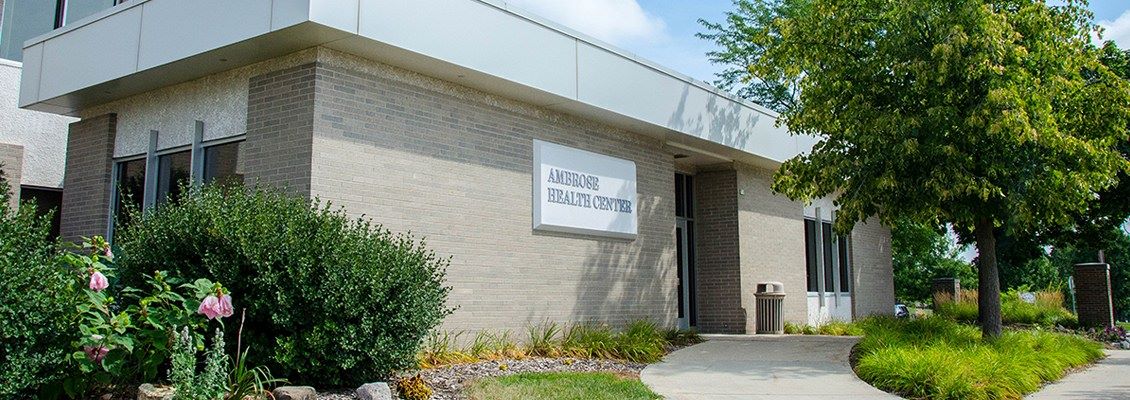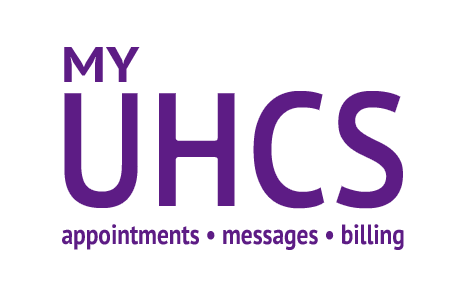Transitioning to UW-W
Wellness Information
UHCS Services
Whether you recently graduated from high-school or you have been working for some time, making the transition to college can be really difficult. If you’ve had a tough time shifting to college life, counselors at UHCS are a great resource for you. They can work with you on any issue that is of concern.
Overview
Things to do before coming to UW-W
- University Health and Counseling Services requests all incoming students fill out 5 online health forms prior to using clinical services.
To complete these forms, go to our secure online MyUHCS portal.- Login with your campus assigned User Name and Password.
- After login, select "FORMS" from the left column to complete the 5 health forms.
- Make sure all immunizations are up to date. For current immunization recommendations, please see our immunization page.
- Bring along a list of current health care providers and counselors and phone numbers, all medications, drug allergies, and health history.
- Pack a first aid kit with Band-Aids, thermometer, tweezers and non-prescription medications you use. Also send along at least enough prescription medicine for one month.
- If there are special medical or psychiatric needs, have the appropriate release of information forms signed and the practitioner's report sent to UHCS. Please add chronic illnesses on the Health History form in the MyUHCS portal. This transition time may not be a good time to change medications, especially psychiatric medication. If you want to continue allergy shots at UHCS, ask the allergist to send your diagnosis, written instructions, and the allergens to UHCS.
- If you currently have health insurance, bring along a copy of the card and check how non-emergency care is covered in the Whitewater area. If you do not have health insurance, we recommend you obtain adequate coverage. UHCS does not provide hospitalization, X rays or specialty care. Information on obtaining health insurance can be found on our insurance page.
- Discuss the transition with loved ones. Many students benefit from talking to a counselor about their adjustment to college and the many changes they face during this time of transition. Use our free counseling services as needed.
Things to do once you are at UW-W
- If you are struggling with something, get help!
- If you have academic concerns, your professors or advisor are great resources. So many students never take full advantage of professor’s office hours and appointments with their academic advisors.
- For financial concerns, the staff in financial aid office know a great deal of resources that can help you deal with the financial burden of attending school. Also, be sure to use the web to look for scholarship opportunities. And don’t just look before coming to college. Many students can find scholarships later in their academic careers.
- Roommate trouble? If you’ve tried talking to your roommate, but still have a problem you can talk to your RA or someone else in Residence Life.
- Don’t know where to go with a problem? Ask someone. You can always start at the information desk in the UC and go from there.
- Get involved! Check out Career and Leadership Development in the UC or online. They are a great source to help you find student organizations where you can get involved. There are over 200 options from intramurals and mental health advocacy, to professional orgs and faith-based groups. If you live in a residence hall, you can also ask your Leadership Involement Team or RA about fun ways to get involved.
-
It gets easier once you establish your routine! When you start something new, the first couple of weeks are usually the most difficult. Give yourself some time to adjust to your class schedule, find the best places to eat and study, and figure out how you want to spend your free time.
-
You are the average of the 5 people you are around most! As you make friends on campus, it is important to remember how much our friends influence who we are. If you are hanging out with someone, make sure that you truly like them and respect them and that they also are a good friend to you.
-
Stay connected to friends and family back home… but not too connected! It’s important to maintain the relationships that you had before coming to college. But, with that said, if you are going home every chance you get, or talking/texting your old friends frequently, you are going to have a more difficult time settling in on campus. Be sure to give yourself plenty of time to make friends here and get involved on campus.
Resources
- Transitioning Healthcare Checklist (for Individuals with Special Health Care Needs and Disabilities)
Disclaimer
All information on this website is written by UHCS professional staff unless otherwise noted. No data is collected on visitors to this site. Financial Support for this web site is provided by University Health & Counseling Service, Division of Student Affairs, University of Wisconsin-Whitewater. This web site does not accept advertising.
This site is not meant to replace the advice of a health care or counseling professional. You should not rely on any information on these pages, or information generated for you by this site, to replace consultations with qualified professionals regarding your own specific situation. Some links take you to a source outside of UHCS. The owners of that site, not UHCS, are responsible for the content.



